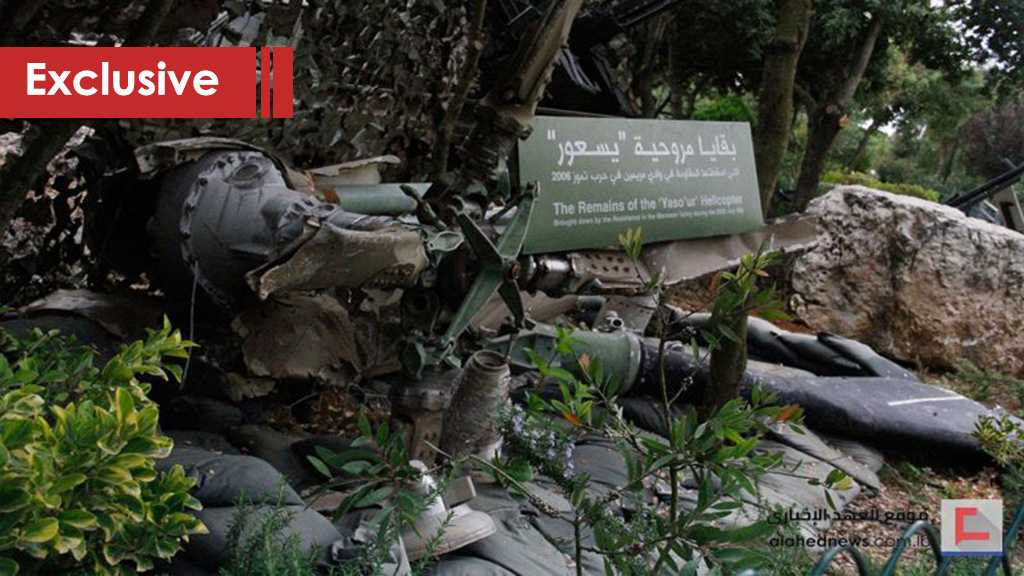
“Israel” Is Still Living the “Ghost” of July 2006!

By Khalil Nasrallah
Beirut – In 2006, “Israel” decided to launch its aggression against Lebanon, taking advantage of a capture operation carried out by the Resistance to liberate Lebanese prisoners in “Israeli” prisons. The “Israeli” decision was not unilateral; it received American support and Arab cover. Later, it was revealed that Washington pushed for it.
In the early days, the goal of the “Israeli’s” was “crushing” Hezbollah – a goal that the days of the war proved was unachievable, and even reached the point of impossibility. This was expressed by Tzipi Livni, the entity’s Foreign Minister in Ehud Olmert's government at the time, she said that any army in the world cannot eliminate an organization like Hezbollah.
The war ended, and the victory of the Resistance was clear. As the Resistance disrupted all the goals of the “Israeli” enemy. In a later time, a report by the investigation committee known as the Winograd Report, which admitted with clear references the failure of “Israeli” intelligence, the wrong management of the war and many other issues.
On September 22, 2006, Hezbollah Secretary General His Eminence Sayyed Hassan Nasrallah gave his first public speech after the war in the southern suburbs of Beirut. His Eminence spoke clearly about the strategic repercussions of the victory, which will be felt in the future.
It was clear that the enemy’s failure in that war was a nail in the coffin of the “New Middle East” project announced by then US Secretary of State Condoleezza Rice, who said from Beirut at the time, at the beginning of the war: “It [the war] is the birth throes of the New Middle East; a Middle East without Resistance, in which ‘Israel’ takes the lead, and the region enters a new ‘Israeli’ era. Striking the Resistance and ending it will constitute a starting point for striking and subjugating Syria after it has been besieged from all sides”. At that time, Iraq was occupied, and the number of American forces and their allies exceeded two hundred thousand.
The “New Middle East” project has been struck. And over the following years, it was clear that the “Israelis” were living the crisis, as the Resistance emerged stronger and began to double in strength. This has begun to be revealed since 2010 when the Resistance demonstrated qualitative missile capabilities.
Later, the war was waged against Syria. The war was intended to end Syria’s role as a prelude to besieging the Resistance this time. But the Resistance engaged in the confrontation. After that, bets were raised on the Resistance’s fall and attrition in Syria, which also did not materialize.
Between 2011 and 2018, at the height of the war on Syria, the “Israelis” expressed the deepening of their security predicament, and many of them were referring to the repercussions of July 2006, albeit indirectly.
The results of that war are still taking place to this day. A simple comparison between the reality of the Resistance at the time and its reality today, we note that its capabilities have doubled in quantity and quality, and the experience of its fighters and cadres has increased, especially after the war in Syria. It has also succeeded in amending the rules of engagement with the enemy in its favor, and has even become a match for it in many aspects.
In the entity, they do not hide the results of the failures of July 2006, and they always draw comparisons to that war in which they used all their might, except perhaps nuclear weapons, without achieving anything.
Whoever monitors and scrutinizes the enemy's statements, whether with regard to Gaza and the capabilities of the Resistance there, or with regard to the Resistance in Lebanon, always feels the “ghost” of July 2006 controlling it, and how it affected the “Israeli” dealings with developments, and even the minds of the entity's military, security and political leaders.
The ghost of 2006 has become a syndrome from which one cannot get out. The strike was strategic, and the Resistance forces are still benefiting from the gains of that victory. Their increasing strength, individuality and courage are only the result of drawing lessons from the 33-day war, and the Radwan forces bare witness.
Comments



